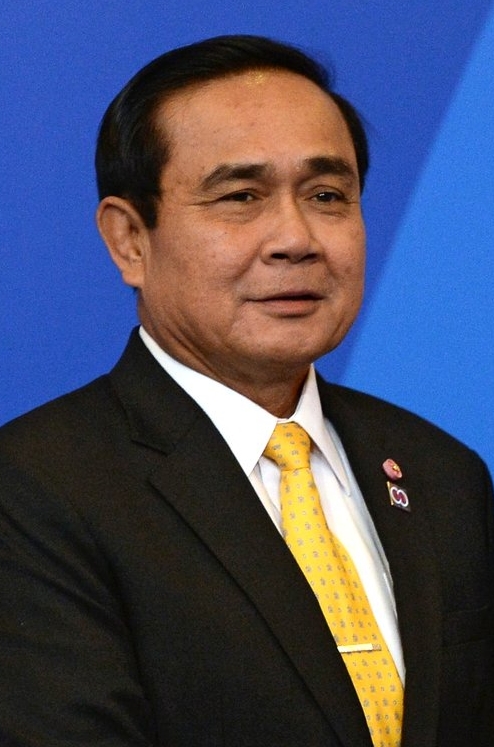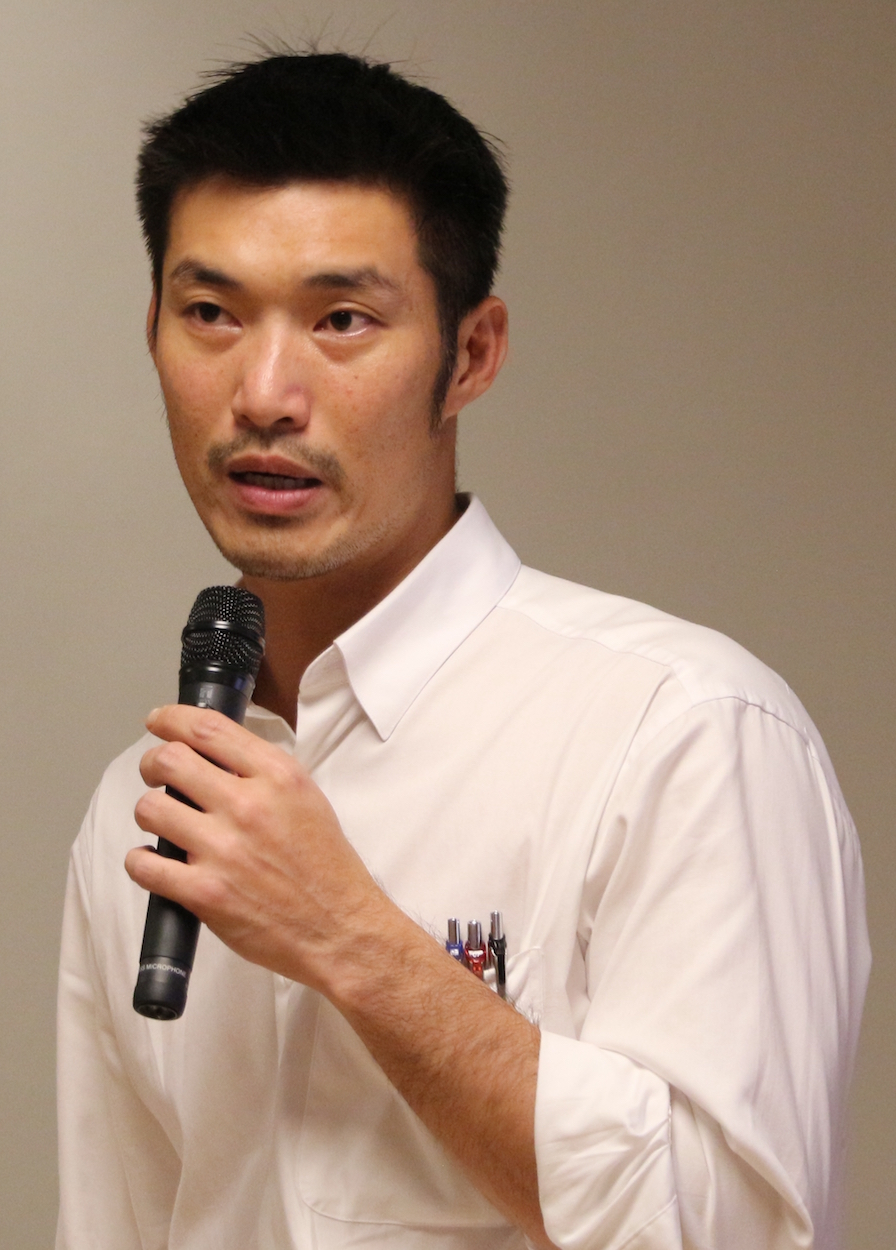by Gabriel Ernst
語言:
English
Photo Credit: Chairman of the Joint Chiefs of Staff/Public Domain
“BE CAREFUL in Bangkok after the election,” a friend told me a few months ago. We were discussing the upcoming national vote. This would be the first election since the junta took power in a 2014 coup.
Prior to the election, many Thais were wary of the expected fall out from what were clearly going to be rigged elections. In past the Thai democracy movement has managed to bring out tens of thousands of protesters into the streets of the capital, often leading to pitched street battles and violent crackdowns, so it seemed inevitable that history would repeat itself when the junta=backed candidate—former military general and coup leader Prayut Chan-o-cha—was announced for a second term as prime minister, his first term being after he took power in the 2014 coup.
 Prayut Chan-o-cha. Photo credit: Kremlin/CC
Prayut Chan-o-cha. Photo credit: Kremlin/CC
To nobody’s surprise, Prayut was indeed confirmed as prime minister last month. During the parliamentary session which appointed him, 250 of his 500 votes came from unelected military appointees to the parliament, who faithfully backed their man, a clear violation of democracy. But life on the streets of Bangkok remains (relatively) calm. There have been no protests, no counter-protests, and no crackdowns. So how did the Thai democracy movement become so placid and why?
Prime minister Prayut’s single opponent in the aforementioned vote was one Thanathorn Juangroongruangkit, a young, handsome, charming, millionaire newcomer to Thai politics. His western liberal-styled Future Forward party saw a huge swell in support during the election, receiving 17% of the vote. Not bad for a party formed only a year prior by a 40-year-old with no previous political experience.
Thanathorn quickly became the darling of the young liberal middle classes, showing up at rallies to crowds of cheering fangirls. Cozy profile pieces were written about him abroad as the handsome, charismatic new face of the Thai democracy movement.
And so after a relatively short election campaign filled with flagrant abuses by junta=backed candidates, royal interventions and dubious election result counts, Thanathorn faced off against Prayut the parliamentary head-to-head. This situation was only due to the bizarre election law which didn’t permit the red shirt Phue Thai party, which won 22% of the seats, to nominate a prime minister. Even more bizarrely Thanathorn himself was not even permitted to enter parliament to become an MP, as Thanathorn is currently under investigation for a series of challenges to his candidacy. These charges are widely considered to be entirely cooked up by right-wing lawyers, which will be examined at the behest of courts stacked with right-wing junta-appointed judges. So, unsurprisingly, Prayut won the unfair game.
Other than a handful of dedicated supporters outside the electoral commission, there were little to no protests. No masses of farmers or university students descending on the capital took place. The reason for this seems pretty clear. Thanathorn told them not to. From the start, he and his Future Forward Party have been dedicated to following the bizarre and complicated rules of Thai electioneering to the letter while their opponents flagrantly abuse it. Future Forward wouldn’t want to rock the boat any further by appearing to support protests, but issues go deeper than that.
The rise of Future Forward and decline of the old “red shirt” Phue Thai party has marked a notable change in Thai political discourse. The red shirts have always been a party of coalition, between the rural underclasses and more liberal educated types. What Future Forward has done is to force a divide through that alliance and, in doing so, destroyed solidarity between the two groups, deepening the gaps in understanding between them.
 Thanathorn Juangroongruangkit. Photo credit: Pitpisit/WikiCommons/CC
Thanathorn Juangroongruangkit. Photo credit: Pitpisit/WikiCommons/CC
While the two parties officially formed a coalition against the junta-backed party, their supporters, now officially split into two separate camps lost that sense of solidarity and power in numbers. In doing so, this allowed liberal charm based politics to grow while material class-based politics shriveled. Now 2019 has effectively left the Thai democracy movement hollow and without its former bite, allowing the junta to essentially continue business as usual but now with the aesthetic legitimacy of a democratic mandate.
The future of Thai democracy looks less than promising. In pulling off the 2019 elections the junta has set various precedents and has the ability to stack judges to the all-powerful election commission for decades to come. There is also a good chance that Future Forward’s supporters might melt away from the party and resurge in a more radical form elsewhere in the future, once they see the failings of western-style liberal politics.
In the meantime, however, unlike the old days, the only pitched battles will not be taking place in the streets but in the courts—courts, which always favour the institutional power of the military. These battles will be long, boring and arduous. People will get fed up of following the many cases as one side brings charges of electoral impropriety against the other and back and forth. Eventually, they’ll change the channel and 2019 will be a distant memory, much like the old bite of the Thai democracy movement.

